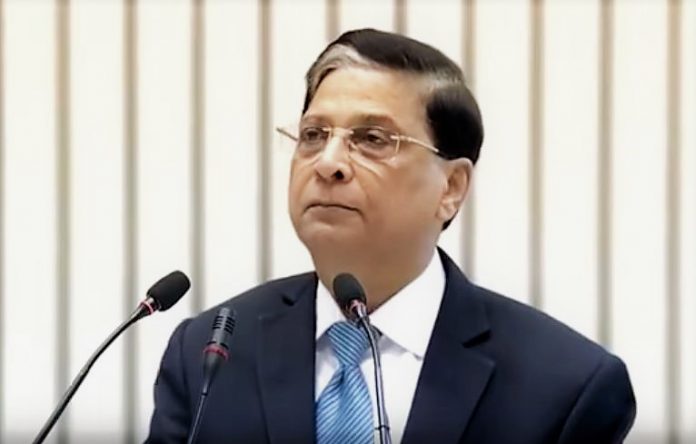Chief Justice of India, Dipak Misra has had an eventful tenure. Even though he became a political target but he did not give in to the political pressure and pronounced certain bold and historic verdicts. In his final week in office, he will be determining yet another important question of law. The point of law is whether a Mosque is essential for Islam and Namaz. It is not related to the Ram Temple case pending before the Supreme Court but a question of law that arose out of the Dr. Ismail Faruqui verdict of the Supreme Court in 1994.
Even though it does not form part of the main litigation regarding the Ayodhya issue pending before the apex court, yet the determination of this question could have a crucial role to play in the final verdict on the Ram Temple case. In the Dr. Ismail Faruqi case, the constitutional validity of the Acquisition of Certain Area at Ayodhya Act, 1993 was under challenge. A three judge bench pronounced its verdict thereon.
In its verdict, the bench had come to the conclusion that under the Mohammedan law applicable in India, a Mosque may be lost by adverse possession. The court had further observed that if this is the position of law, then there can be no reason why a Mosque should be given a special or unique status, different from the places of worship of other religions in a secular India. The bench also came to the conclusion that a Mosque cannot be immune from acquisition by exercise of sovereign powers of the state. Coming to the question of necessity of Mosques for offering namaz, the Court had made it clear that namaz can be offered by Muslims anywhere, even in public spaces and therefore, it cannot be said that Mosques are essential for offering namaz. And that the acquisition of a Mosque is nowhere prohibited under the provisions of the Constitution of India.
The court also made it clear that in India we are not concerned with the status and position of a Mosque in any Islamic country. Its position is to be interpreted in accordance with the secular ethos of the Constitution of India. And as such it enjoys no privilege or immunity from state acquisition over and above places of worship which belong to other religions. Therefore, its position is neither more nor less than that of places worship of other religions. The court however, also made it clear that the power to acquire places of religious worship is to be exercised only in the most unusual and extraordinary of circumstances and for a larger national purpose. It should also not lead to extinction of the right to practice, profess and propagate the religion. However, subject to these limitations there is no other restriction on state power to acquire any place of worship including a Mosque.
Even though this does not concern the main litigation concerning the Ram Temple case, but legal experts agree that interpreting of this question of law could have a significant bearing on the title suit. The bench could either uphold the Faruqi verdict, interpret it in a different way or totally strike it down. If that verdict is upheld then it will pave the way for a Ram temple to be constructed at the disputed site. In fact, the question whether a Ram temple can be constructed on the said site depends totally on how the question in controversy is decided.
